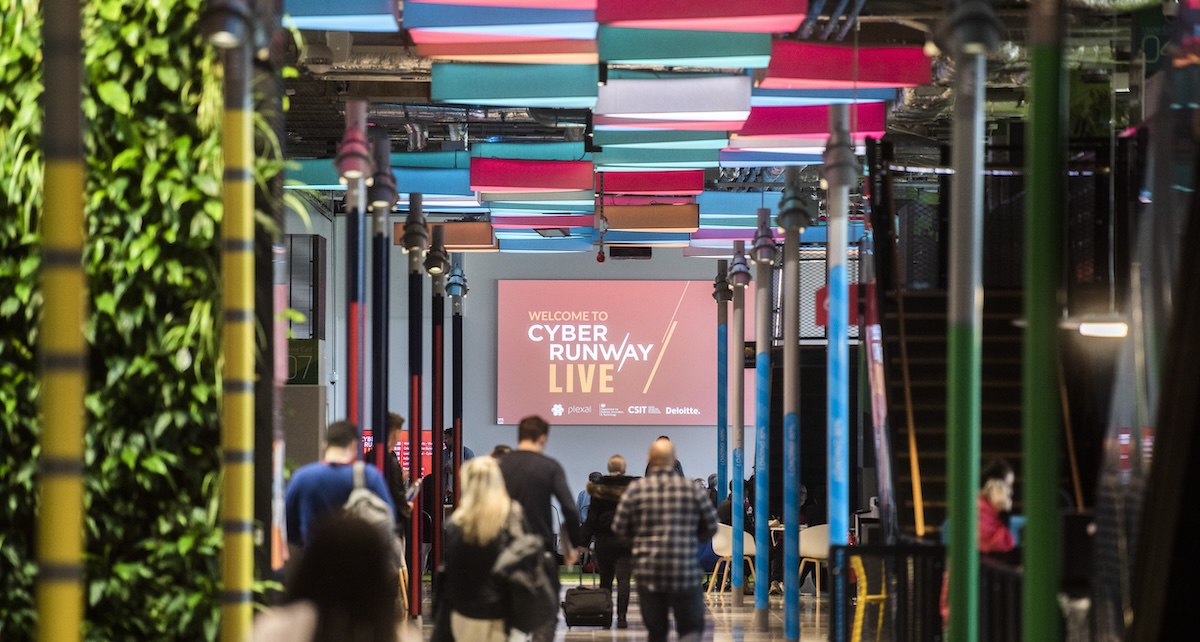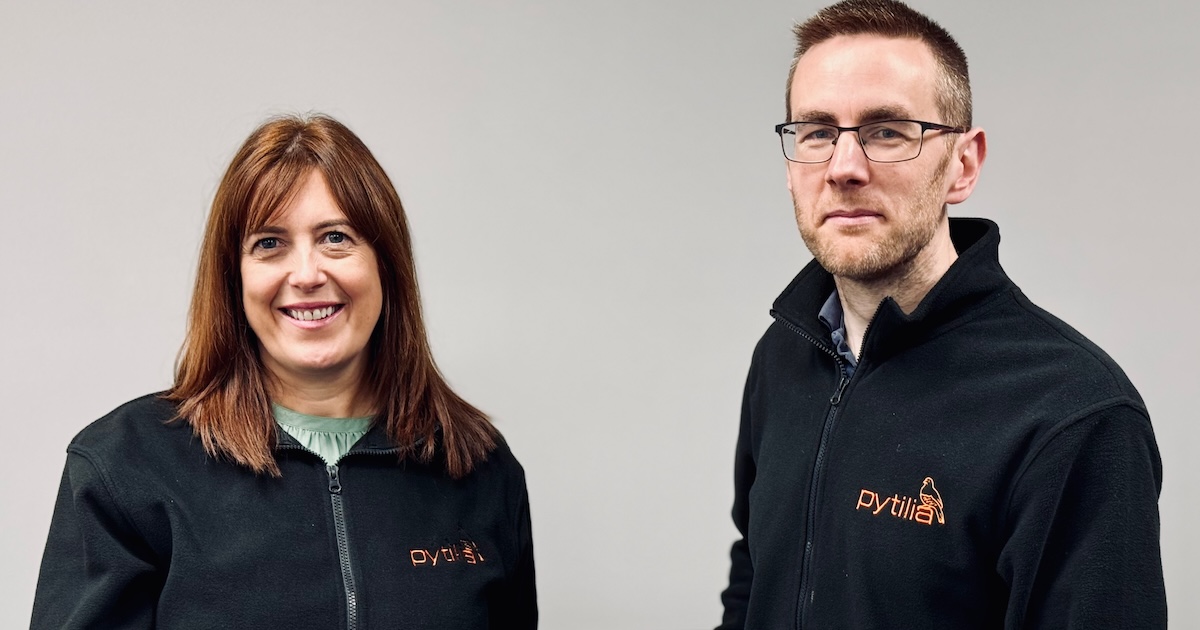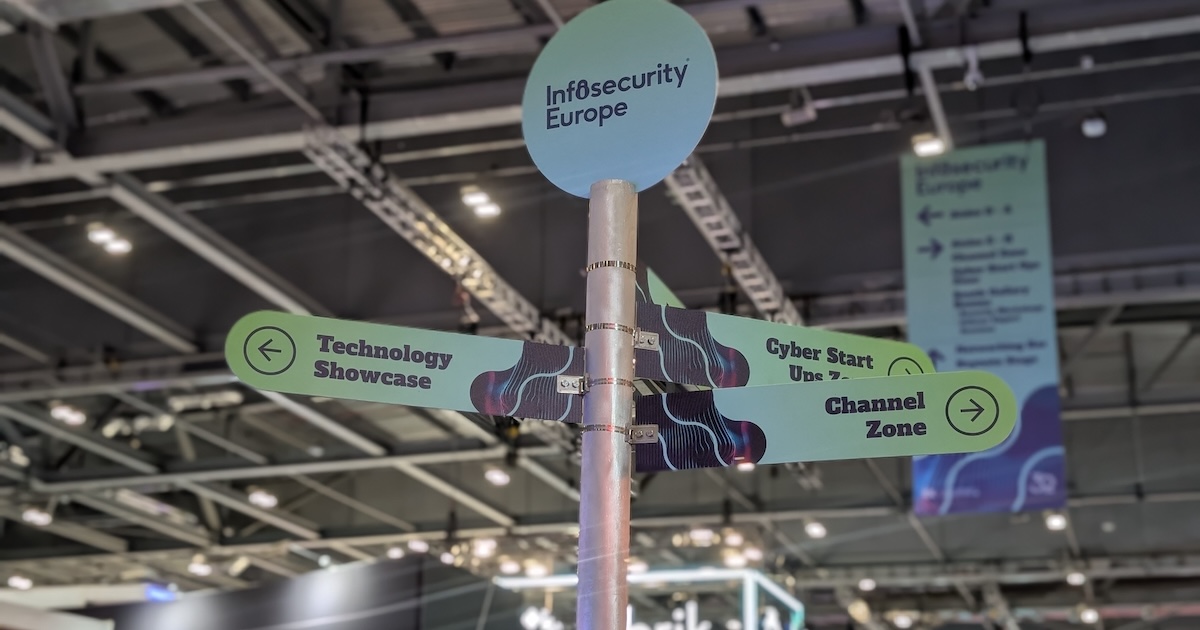Last spring we fired up the engine on Cyber Runway 3.0, the third cyber accelerator that Plexal has delivered in partnership with the Department for Science, Innovation and Technology (DSIT) – with support from the Centre for Secure Information Technologies (CSIT) and Deloitte.
Over the past six months, we’ve run four Cyber Runway streams designed to help UK cyber startups to Launch, Grow and Scale their companies as well as Ignite their leadership. With that, this edition of the programme has concluded and to celebrate the accomplishments of our participants, we hosted a Cyber Runway Live graduation event at Plexal Stratford.
Interested in being part of a future Cyber Runway? Applications for all streams will open in May, so share your details and any questions you have with cyberrunway@plexal.com to be the first in the know when more details are released.
“The UK has a thriving tech sector with great people, great companies and great ideas” – Viscount Camrose
Delivering a welcome speech to founders from over 70 companies in attendance alongside other cyber stakeholders including investors and industry, Viscount Camrose, Minister for AI and Intellectual Property, said: “Seeing you all here encapsulates what Cyber Runway is about – bringing the cyber sector together to create the connections and ecosystem we need to develop the products and services that keep our country safe online. That’s why DSIT funds Cyber Runway, because we understand that a strong cyber sector is built on the hard work of companies like yours.
“Supporting the cyber ecosystem is one of the pillars of our National Cyber Strategy. Backed by £2.6bn of investment, the strategy aims to protect the UK digital economy and to ensure we remain one of the leading global cyber powers. To do this, we need a cyber sector with the right structure, the right partnerships and the right networks in place. Cyber Runway is a key part of this.”
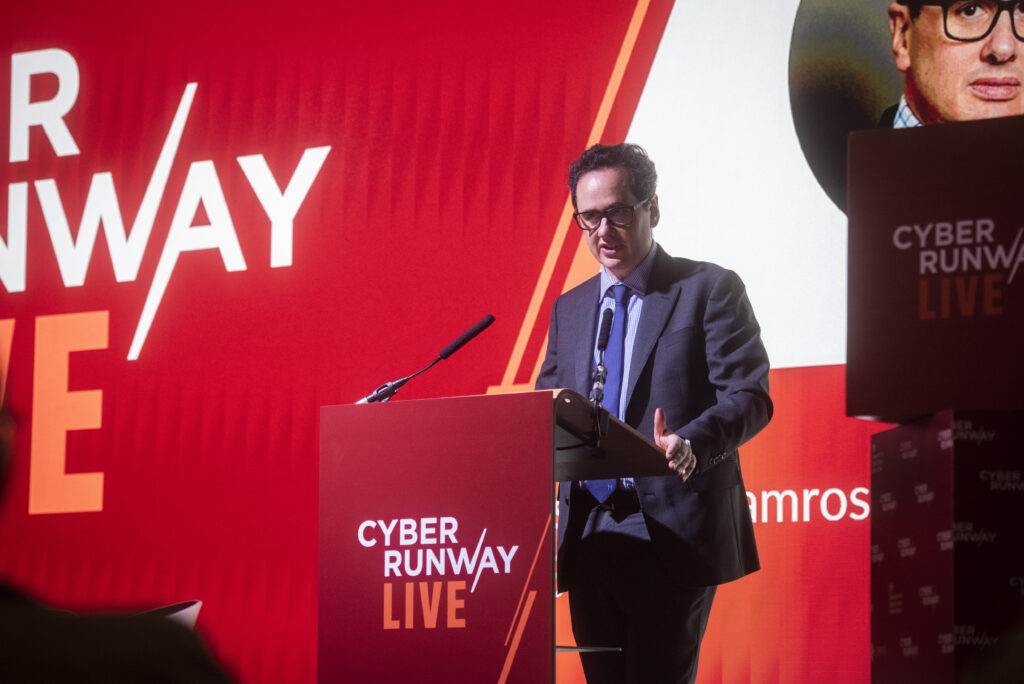
Viscount Camrose reinforced the UK’s current position with stats, detailing:
- Total annual revenue in the cyber security sector last year was £10.5bn
- The sector provides 58,000 jobs
- There are almost 2,500 companies operating in cyber security
“The UK has a thriving tech sector with great people, great companies and great ideas,” he continued. “And to ensure this sector can succeed, we want to equip you with the skills and development you need to grow and scale your businesses, which is at the heart of the Cyber Runway mission.”
“Your peer group is your strongest asset” – Monika Radclyffe, Plexal
Acting as MC for the day, Monika Radclyffe, Director of Innovation Programmes at Plexal, highlighted to an engaged audience that the programme is a result of the cohort commitment. “Cyber Runway is a success because of how much you put into it,” she reasoned. “In November, we took our members on a trade mission to Slush in Helsinki, which presented an opportunity to connect with investors [from global markets]. Then in February, the team visited Dubai to foster new connections to help them establish their products in the Middle East.”
Highlighting the importance of community, Monika added: “Crucially, friendships and bonds have been created and cemented during the programme, which has been a delight to witness. Support each other – your peer group is your strongest asset.”
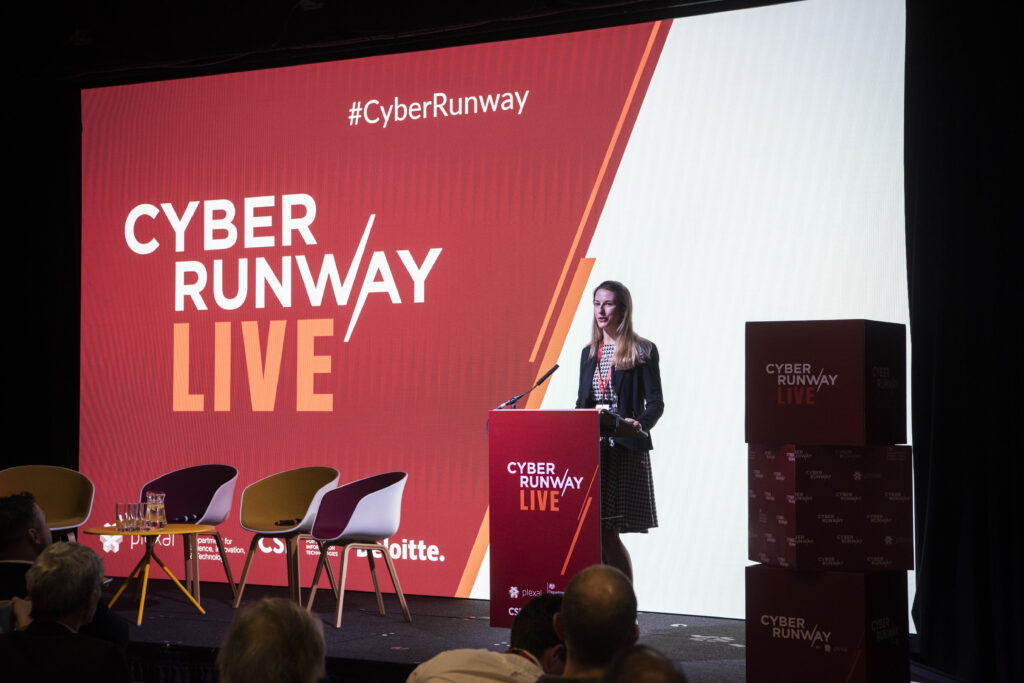
“I was determined to come back to Cyber Runway at any cost” – Adrian Fern, Priszm Technologies
The first panel of the day was chaired by Alan Every, Innovation Lead at Plexal. With the focus on reflections, he was joined by:
- Scale graduate (previously Grow) – Adrian Fern, CTO at Priszm Technologies, which provides a secure way to put information into the cloud
- Grow graduate – Jade Eskenzi, COO at The Zensory, which helps reduce alert fatigue, human error and alleviate burnout within security teams
- Grow graduate (previously Launch) – James Bradley, CEO at Splitsec, a secure cold-storage for storing master secrets
Asked by Alan what their highlights were, Adrian kicked off to champion peer engagement. “Following Grow, I was determined to come back to Cyber Runway at any cost. I really got the most out of talking to people with different perspectives and views that I struggle with as a founder.”
One such conversation Adrian benefitted from was on the topic of funding. A mentor highlighted that investment is fundamentally about fixing problems so, if you can identify what the problems are and how the money will present solutions, it suddenly becomes easier to secure funding.
Jade was in full agreement with Adrian’s sentiments. “Meeting people in the community really stood out for me,” she said. “As a startup, you’re so siloed and it’s easy to think in your own way. But the Plexal ecosystem is so diverse, you never know who you could be introduced to which can unlock a whole new way of thinking. It’s so valuable to have people like that in your corner, or else it’s so hard to find otherwise.”
Meanwhile, James highlighted that being around founders, especially those who have exited their companies, can provide some really great stories where you can hear about the road from start to finish. “One founder reminded me that all the painful bits and struggles of running a business are inevitable, and sometimes perilous, but it’s very normal and you don’t have to beat yourself up about it.”
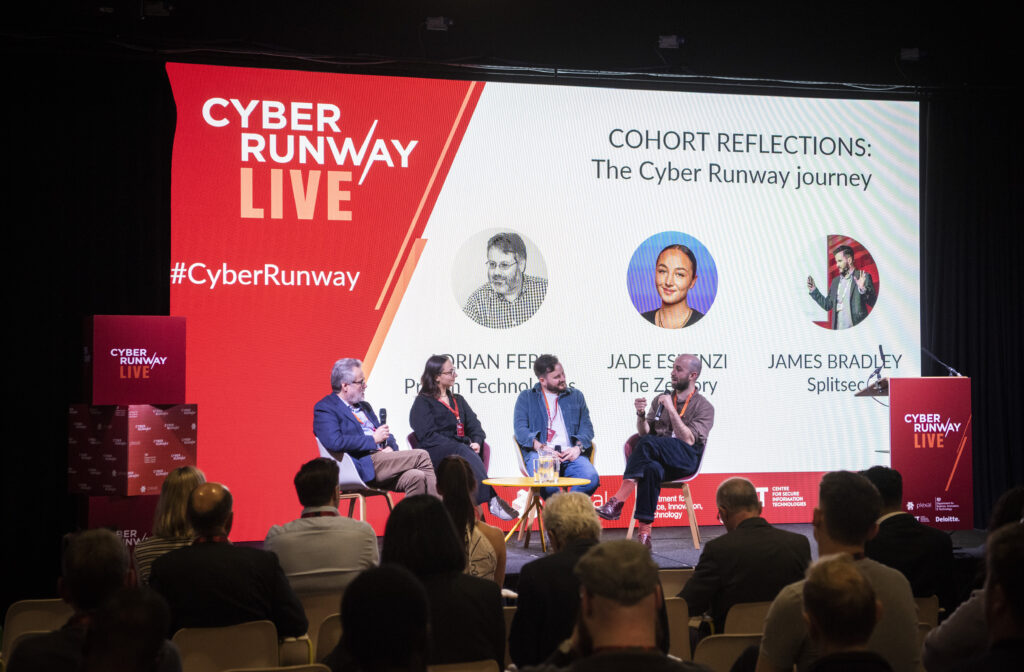
“I’ve never felt included or like I fit anywhere” –
Shelley Langan-Newton, SQR
Maria Barr, Innovation Associate at Plexal, led the next session around leadership with two Ignite graduates, including:
- Shelley Langan-Newton – CEO of identity verification platform SQR
- Mayur Upadhyaya – CEO and Co-founder of API security company APIContext
Having started her career in performing arts and worked as a secondary school teacher before a job switch into telecoms which set her on the journey to head SQR, Shelley owns her non-technical background to bring authenticity to the cyber sector. Unfortunately, she was initially met with sexism, with expectations that, as the only woman in the room at times, it was her responsibility to manage the tea round.
“What is a leader?” Shelley pondered, repeating back the question asked by Maria. “What does that mean to me? My bias of a CEO is I think of a man of a certain age in a suit. And I’m not that, so I’m saying in my head I’m not a leader.“
This prompted Maria to note that it’s important we don’t have cookie cutter leadership, which in turn prompted Shelley to highlight the value of Cyber Runway Ignite, which had a 50-50 male/female cohort split. “I’ve never felt included or like I fit anywhere,” confessed Shelley. “But I feel like I fit because we’re different but united by the programme, which makes us the same on this journey.”
“Ignite was a helpful opportunity for me to take a step back” – Mayur Upadhyaya, ContextAPI
Sharing his perspective, Mayur detailed: “Everyone has some form of privilege over someone else. As a person of colour, I’m aware of that – but then as a male I experience a certain privilege. Where one cohort member may need to rush off for childcare, I’m fortunate to have my parents and my wife supporting my position to travel or network.”
Mayur notes that he’s experienced “huge imposter syndrome” within the workplace but has taken inspiration from a manager he had earlier in his career, recognising their exhibition of two traits, visionary and servant, which has led him to work to emulate that. “Ignite was a helpful opportunity for me to take a step back and think about how I want to be a visionary leader and a servant leader, which isn’t always easy during the day-to-day of the business,” Mayur said.
Maria noted how encouraging it was to see the Ignite cohort so open with one another versus the traditionally close-guarded leadership style others can adopt. “In the UK and Europe, we don’t discuss or celebrate failure [enough],” opined Mayur. “Some tech publications could lead you to think everyone wakes up a billionaire, without struggling and executing on different things. Having a cohort that you can talk to allows you to discuss [ideas], build [your business] and maintain [focus] moving forward.”
Shelley detailed how the programme has helped her reach a moment of realisation. “What I thought was impostor syndrome, the feeling I don’t know what I’m doing; isn’t that every day as a startup founder?” she said to a nodding audience. Shelley went onto explain that her mentor Andrew Roughan, Plexal’s CEO, is often helping her find her purpose when challenges seem insurmountable. “So, in that bit of learning is the growth,” she continued. “What I labelled impostor syndrome is growth and learning. I’ll always listen to what someone has to say. I’m a working product and what you see is a result of an evolution with Ignite, which helped me be a better leader.”
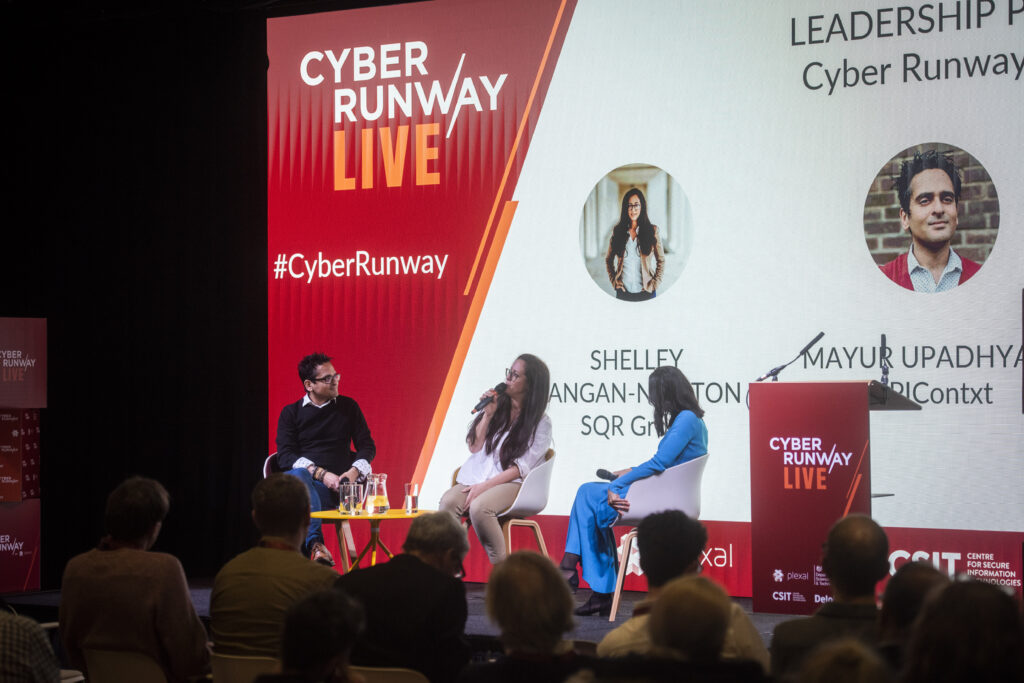
“Resilience isn’t just about technology, it’s a unified partnership” – Arash Ghazanfari, Dell
Our next item on the Cyber Runway Live agenda was an industry discussion between Deloitte partner Stephen Wray and Dell Technologies UK CTO Arash Ghazanfari, with the pair covering market challenges, trends and opportunities.
Setting the scene with a reminder, Arash offered: “Resilience isn’t just about technology, it’s a unified partnership between business stakeholders, IT stakeholders and security teams.” He added that although there are many startups and innovators operating within the cyber security sector, the market remains fragmented by too many solutions for the overwhelming number of problems.
With this in mind, Arash encouraged people to understand what the CISO is facing day-to-day, noting that they’re operating in an environment that probably has too many security controls, which are generating too much noise and sometimes working against each other, while also lacking actionable threat intelligence.
“I think the majority of vendors are focused on prevention, which is always better than cure, but with ransomware being one of the most prolific attack vendors now, the barriers to entry decreasing,” Arash highlighted. “For example, I can go to a ransomware-as-a-service provider, pay them in bitcoin and launch an attack on any organisation.” As such, he commended firms such as Deloitte and Gartner for reinforcing the need for businesses to prioritise resilience.
“They’ve got their cyber house in order, they’re willing to take a risk…” – Stephen Wray, Deloitte
Stephen began reeling off supporting data from a recent Deloitte global cyber survey, revealing: “69% of large organisations globally had a cyber-attack and breach last year. But only 51% of organisations felt they had a really strong approach to cyber risk and have taken the right actions to identify risks, which is still quite alarming.”
He added 55% of mature organisations globally stated that good cyber hygiene and risk management was an enabler to allow them to try new things, such as generative AI, alternative data strategies and so on. “If they felt they’ve got their cyber house in order, they’re willing to take a risk and make the most of every opportunity to deploy new technologies and new approaches to manage their business. And that’s a healthy trend we’re seeing.”
Sharing another industry challenge, which equals an opportunity for startups, Arash revealed: “[We at Dell are seeing that] the attack vector is significantly increased and matters become more complicated where operational technologies are used [across areas] like smart manufacturing, smart retail, energy, oil and gas. For innovators and startups, this is a huge opportunity because it’s one of the untapped areas where the industry is not enjoying the same protection as the traditional IT side.”
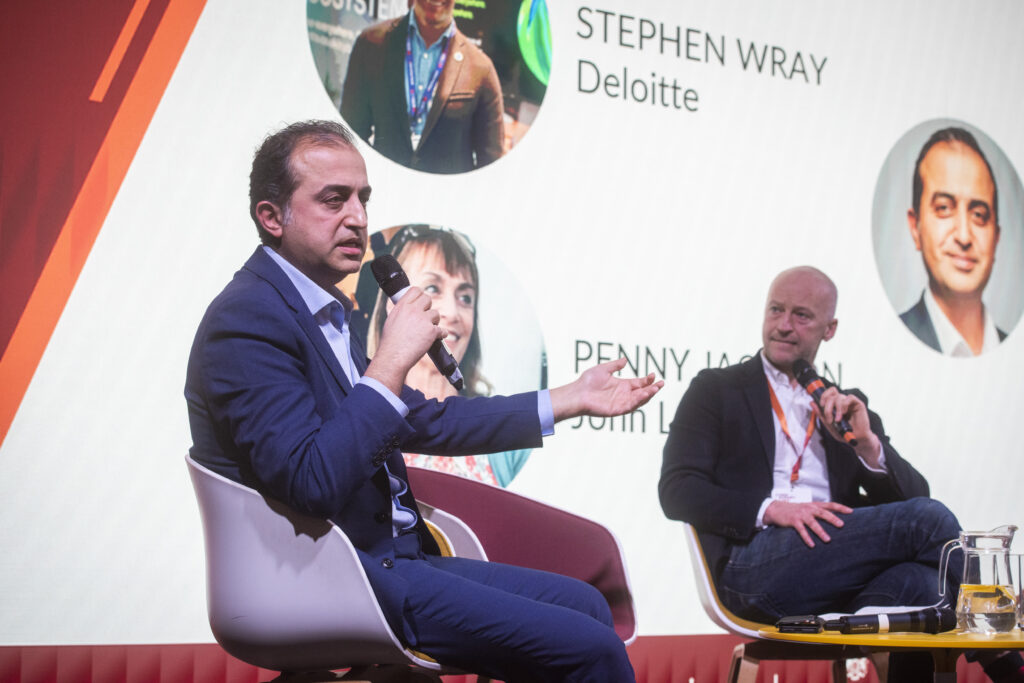
“A very, very old scam…except she added an exciting and fashionable technology on top of it” – Jamie Bartlett
Taking to the stage to deliver the Cyber Runway Live keynote was Jamie Bartlett, the man behind The Missing Cryptoqueen podcast and author of The Dark Net and The People Vs Tech. He reflected on his investigation of Ruja Ignatova, who earnt a place on the official FBI Ten Most Wanted Fugitives list for founding OneCoin, “a purported cryptocurrency… believed to have defrauded victims out of more than $4bn.”
The keynote served as a cautionary tale for all. “The entire thing is completely fabricated,” he said. “There is no blockchain technology, the price of the coin that she kept creating and telling everybody was real was just a figment of her imagination. The whole thing was not a brand-new scam, this is a very, very old scam – a straightforward, pyramid scheme. Except she added an exciting and fashionable technology on top of it.”
Referring to Ruja Ignatova as a mastermind on the fear of missing out, Jamie declared: “Scammers are looking for opportunities to exploit the weak points of human psychology – even if you trust them for a human moment.”
He regrettably conceded to the audience there’s a very small percentage of scammers to be caught and prosecuted. “So, it’s going to fall to you to actually be able to do something about it. Remembering every single online crime, scam or phishing link, whatever it is you’re able to stop, it’s so much more than a bit of money, it’s a human cost you’re able to stop too. They won’t know you’ve done it, they hopefully don’t even know you existed or fixed something before anything went wrong – but you’ll know you’ve done it. And with that, I wish you all the very best of luck.”
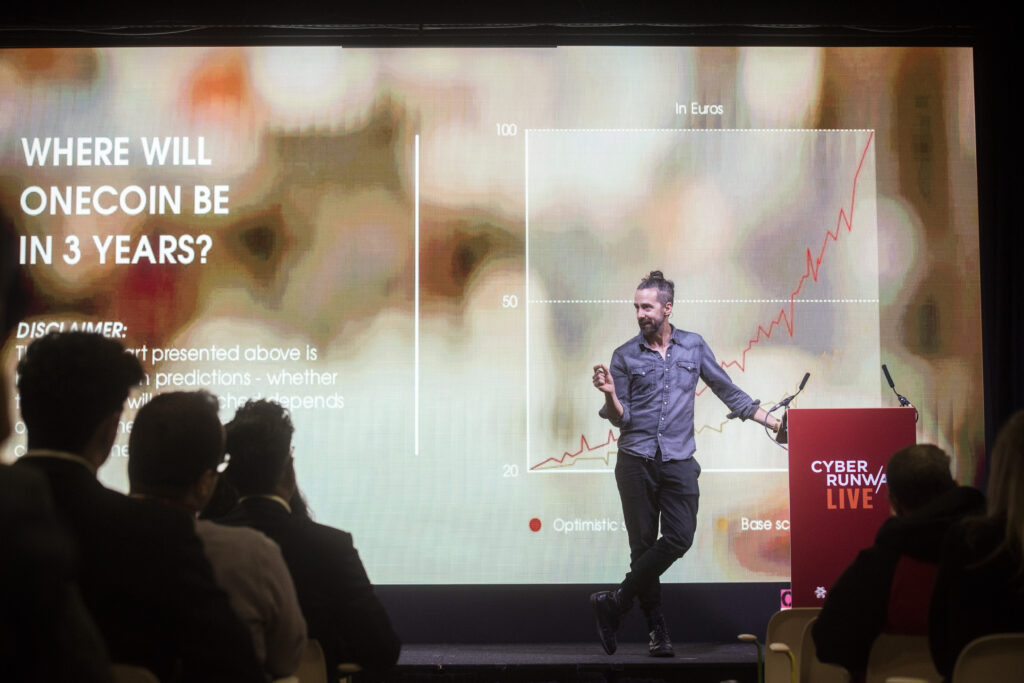
Closing off proceedings, Plexal CCO Saj Huq, a member of the National Cyber Advisory Board, concluded: “Our team has supported hundreds of companies through Cyber Runway and we’ve been overwhelmed and bowled over by commitment that goes into running a startup. All of you have stepped up to the challenge and put so much on the line to move the defensive side of the community forward, which has provided countless lessons on how entrepreneurs obsess with solving problems. Thank you to all the entrepreneurs that make this space so interesting!”
Watch the video below for the Cyber Runway Live recap.
